
Select the languages and indexes you wish to search. To search for ecobricks use our brikchain search.
Pages: EN FR ES IN Glossaries: EN FR ES INAs a not-for-profit Earth enterprise on principle we do partake in any 3rd party advertising, nor connect your data to social platforms that do. Your data will not be sold or exchanged. We proudly use Ghost.org's for our newsletter-- a not-for-profit open source platform which we host on our own servers. Our newsletters are sent usually once a month, we commit to not exceeding more than one a week.
What are ecobricks? 🇮🇩 IN 🇪🇸 ES 🇫🇷 FR 🇬🇧 EN GoBrik ✉️ Trainer Email Trainer NextCloud ❌ Reset Preferences Ecobrick Applications Practical & Principled Ecobrick BuildingEcobricks can build furniture, gardens, play parks, structures and more. The only limit is our imagination!
That said, building with ecobricks is a big responsibility. To make sure that ecobricks and the plastic they contain are safe and secure the Global Ecobrick Alliance (GEA) has developed building guidelines, standards and principles. By following these best-practices, we can be sure our ecobrick applications keep plastic sequestered over the short-term and the long.
Short-term Applications
Silicone or inner-tube-bands can be used as short-term, non-permanent attachment methods to create ecobrick applications that last for months and up to several years.
As short-term applications are not usually covered up, they are typically for indoor use, in order to prevent the UV photodegradation of the bottles. Short term application are easier for people to make and accelerate the mandalic spread of ecobricking and the regenerative principles they embody.
Long-term Applications
Earth and Ecobrick building techniques are used to create structures that can last years or decades (it is not uncommon for traditional constructions to last centuries!). Earth mixes (i.e Cob (material), Wattle and daub, adobe) are used to lay ecobricks horizontally and completely cover them for full protection against all forms of degradation.
Very long-term
Short and long-term ecobrick applications put plastic into a cyclical spiral trajectory into the future, where the likelyhood of plastic staying safe, secure and contained is much more likely than currently available alternatives.

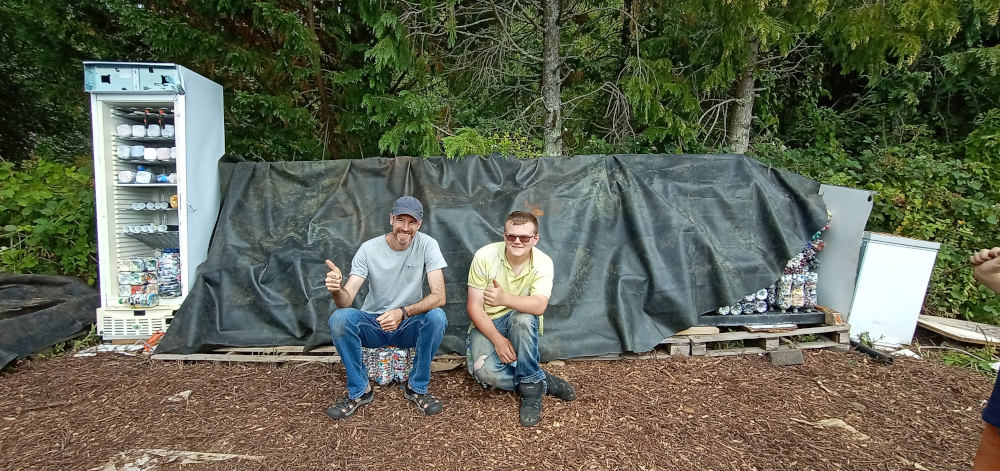
Before you build with ecobricks, it is essential to store them properly. Ideally, ecobricks are stored off of the ground (on a floor or raised on wood) and fully protected from the sun and the elements. Ecobricks are best stacked horizontally with their bottom pointed outwards. This enables you to organize your ecobricks by colour and brand– which later facilitates project planning and making.
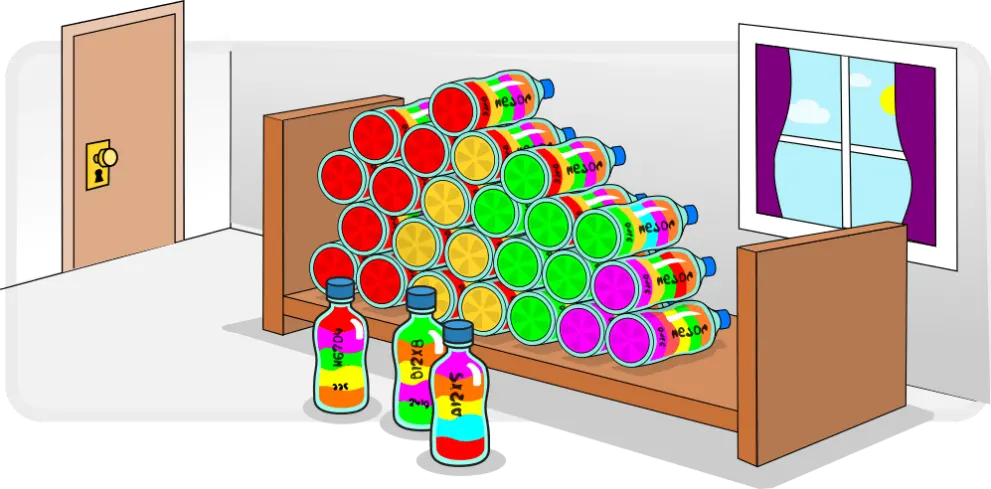

The easiest, fastest, and perhaps the most fun ecobrick application, are Milstein Modules (MMs). These are hexagon and triangle shaped configurations of ecobricks that are used for sitting, but can be combined together to form one or two level horizontal surfaces. Applications include tables, beds, stages, etc. All you need are 12 ecobricks to start! Generic silicone sealant or motorcycle inner tubes can be used to make MMs. Ecobrick Milstein Modules can then slide into deployment for classes, concerts, meetings and more to make horizontal surfaces. They can be stacked one on top of the other to add one level of vertical height. They can be stacked and stored vertically to save space.

Modules should be cleaned once a year. Broken modules can be repaired with silicone.
Well-used ecobrick Milstein Modules will last 2-3 years. After this time, the silicone joints began to weaken and fail. Ecobricks also begin to loose their lustre as the colors of the contained plastic begin to fade. This is a good opportunity to transition them to long term building applications where they are fully protected with earth.
For indoor use only. The UV rays in sunlight will degrade and fade your ecobricks and weaken the bottle’s plastic.
Check our page all about the various horizontal ecobrick module variations.

So this is pretty cool – ecobricks can make LEGO-like blocks! Dieleman Modules, or DMs for short, are a way to turn bottles into modular bricks that can be stacked vertically. Sixteen ecobricks are siliconed together to make one DM module.
DMs interconnect just like Legos. They stack one upon the other and enable you to make walls, towers and columns, quickly and easily without any glue or mortar. Best Usage: Awesome for open spaces, indoor playgrounds and building structures for concerts or fairs in minutes. Can be taken apart and stored just as fast!
The DMs can then be disassembled just as easily.
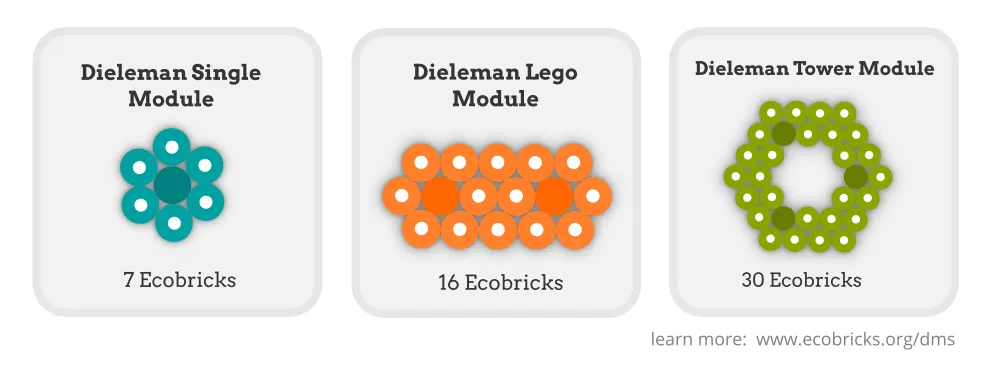
Modules should be cleaned once a year. Broken modules can be repaired with silicone.
Well-used DMs will last 2-3 years. After this time, the silicone joints began to weaken and to fail. Ecobricks also begin to loose their lustre as the colors of the contained plastic begin to fade. This is a good opportunity to transition them to long term building applications where they are fully protected with earth.
For indoor use only. The UV rays in sunlight will degrade and fade your DMs and weaken the ecobrick's plastic.
Check our page all about Dieleman modules.

Use the basic principles of Earth and Ecobrick Building to make outdoor stools, coffee tables and more with your ecobricks. These modules are an ideal place to start to learn the basics of Earth building. We use their construction in GEA Builder courses as a simple, non-structural start to the fundamental earth building techniques.
Earth modules must be move around carefully as they can crack and break.
Once broken or cracked, modules can be destroyed and their ecobricks extracted and reused. If pure cob has been used, this too can be wet and reused in earth building projects.
Avoid building fully with cement. Cementing ecobricks make them often impossible to remove without the bottle being ruptured. Often earth modules can also be very heavy and care must be used in moving them.
Check our page on earth and ecobrick building techniques.

Ecobrick Open Spaces are for community that have completed thousands of high quality ecobricks with consistent bottle sizes and brands. These ecobricks can then be combined into an assortment of Milstein and Dieleman modules to create a diverse set of several hundred modules.
These modules can then be deployed for conferences, exhibitions, fairs, and other special events to create customized interactive spaces. These spaces can either be set up in advance or invite participants to interact, play, and create their own space.
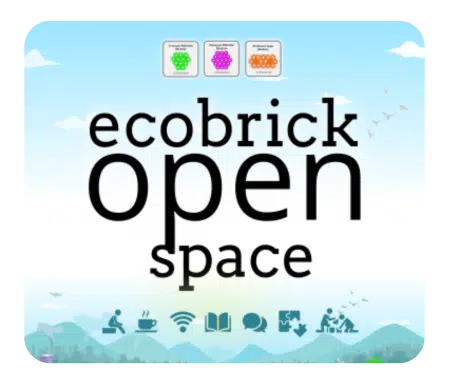
Ecobrick communities that have amassed Open Space sets often rent out to events and venues to showcase ecobrick modular technology and regenerative principles.

Open space module sets should be cleaned once a year. Broken modules can be repaired with silicone.
Well-used ecobrick modules will last 2-3 years. After this time, the silicone joints began to weaken and to fail. Ecobricks also begin to lose their lustre as the colors of the contained plastic begin to fade. This is a good opportunity to transition them to long-term building applications where they are fully protected with earth.
Open spaces should be indoor or in covered spaces only. The UV rays in sunlight will degrade and fade your ecobricks and weaken the bottle’s plastic.
Check our page all about Ecobrick Open Spaces.
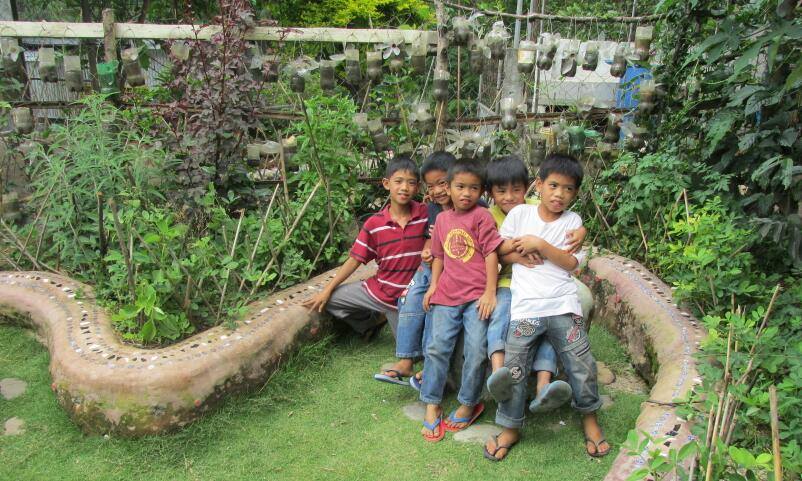
Our number one choice for structural building! This method is strong, earthquake resilient, allows curved walls and designs, allows ecobricks to be recycled at the end of the construction, and relies only on 100% organic, locally-sourced materials that cost next to nothing.
Earth building was used by our ancestors to build homes and structures that have endured for centuries. This general method is known by different names in different languages and continents– cob, adobe, wattle-and-daub, etc. By using local earth, straw and sand to make the mortar for the ecobricks we can build in ways that are resilient, strong, beautiful, and thermal-retentive.
Earth building is in full resonance with our principles — it is simple and replicable, non-capital, non-petroleum, collaboration powered, cradle-to-cradle and potently regenerative. Earth building techniques are gender and age transcendent: involving men and women, young and old, and everyone in between in the building process.
Earth and Ecobrick Building is ideal for constructing simple garden spaces – playgrounds and what we call ‘food forest play parks‘.
The Ecobrick and Earth Building techniques can then be extrapolated for wall and structure construction.
The Earth Building technique can completely cover ecobricks, effectively securing them indefinitely in the construction. This keeps them safe from UV light and other forms of degradation. After 10, 20 or 100 years, when your structure comes to its end (as everything eventually does) the ecobricks can be extricated undamaged and fully repurposed.
Earth modules need to be regularly inspected. Cracks and breaks to the wall are best quickly repaired to avoid erosion to the structure.
Earth and ecobrick constructions disassemble into crumbled cob mortar which can be returned to the earth without problem (or reused in another earth construction!). The ecobricks can be removed from the crumbled cob to be reused in any way.
It’s outside of the corporate construction paradigm: your bank won’t give you a mortgage, insurance companies won’t cover it, and your hands and feet will get dirty.
Check our page on the core concepts of Earth & Ecobrick Building.

A revolutionary low-tech system to enable the construction of versatile, practical and stunning geometric matrixes with minimal skills or capital using nothing but reclaimed plastic.
Remolded from locally-sourced, reclaimed-plastic, ecoJoiners enable ecobricks to be interconnected in a wide variety of ways. Simple ecoJoiners (green) enable vertices of any length. Hex and penta hubs (red and pink) enable lattices with the help of pupJoiners (orange). All are held fast with sliders (yellow) that takes advantage of an ecobrick's slight compressibility to lock constructions rigidly in place-- all the while ensuring any construction can be easily taken apart and each piece can be used again and again.
Coming in mid-2024.
It is important not to forget our responsibility when building with plastic. Ecobricks represent large amounts of secured plastic, and if our constructions lack planning and maintenance, there is the risk of the plastic escaping loose into the biosphere. Planning for the maintenance and the end of the construction is a key part of plastic sequestration!
Ecobrick furniture and modules need regular cleaning and repair. Our GEA Trainer Team who have several hundred ecobrick modules that they regularly rent out to cities and exhibitions, spend one day a year cleaning their modules with a high powered hose and soap. They also dismantle weak modules and repair them with silicone.
Part of ensuring the longevity of ecobrick modules is to train those who use the modules how to handle them. Modules should always be moved with two hands. This is especially important with ecobrick Dieleman lego which new users are often tempted to grab with one hand.
Earth and Ecobrick builds often represent large amounts of secured plastic. When building on government or community land, it is key to establish a long term maintenance agreement with the custodians of the property. This agreement must include yearly checkups and repairs and also a plan for the destruction of the construction to ensure the indefinite integrity of the ecobricks.
Access our free Community Custodianship Agreements for Ecobrick Earth Parks and Buildings.

People around the world are building all sorts of great and unique things with their ecobrick! Did you know that Ecobricks float really well? We can’t wait to see the first ecobrick boats and islands. Have you seen or developed useful applications? Please share with us, or help our team develop this page further. Share your photos on the web with the hashtag #ecobricks.
From baseball bats to boats, the sky is the limit on what you can use ecobricks for! Ecobricks can be used for getting fit, for games and more.
Building with ecobricks is a significant responsibility. Ecobricks represent large amounts of secured plastic that will last a long time. If our constructions lack long-term planning and maintenance, plastic will eventually leach, degrade, and escape.
Planning for the maintenance and the eventual end of your construction is crucial. This way, we can put our plastic on a safe passage through time.
Go deeper into putting ecobricks to good use. Learn about the core concepts of building with ecobricks and earth.
An overview of earth building principles and methods.



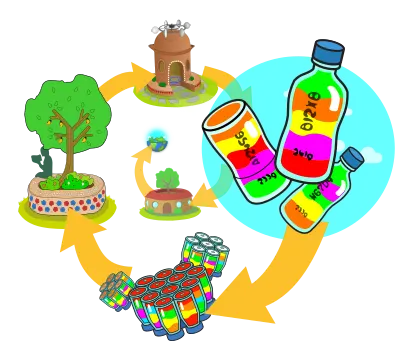
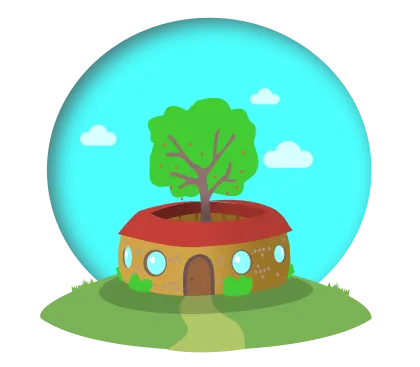

We envision a Transition in our Households, Communities and Enterprises from Plastic to an ever Greener Harmony with Earth's Cycles.
Ecobricks on WikipediaAlso known as Eco Bricks, Eco-Bricks, Ecolladrillos, briks, bottle bricks and ecobriques the Global Ecobrick Alliance and Wikipedia endorse the spelling 'ecobrick' to refer to the sequestration of plastic in a PET bottle to make a reusable building block.
Our Gobrik AppGoBrik is a web app to serve the local and global plastic transition movement. It is maintained and developed by the Global Ecobrick Alliance. Learn more about our Gobrik project.
Earth EnterpriseThe Global Ecobrick alliance is a for-Earth, not-for-profit, enterprise based in Indonesia. We operate under regenerative principles. Consequently we have no corporate,company or government sponsorhsip. Our revenue is genearated by providing ecologial service and educational experiences
Tech PartnersOur vision of Plastic and Petrocapital transition is a global collaboration! We are grateful to our partners who have given us full access to their awesome technologies. Thank you to DewaWeb Hosting whose servers host our sites and to SVGator whose animation platform gives life to our graphics.



We track and disclose our net-green ecological impact. See our Regen Reporting and our dynamic impact accounting for 2024.
The Ecobricks.org site is hand coded in open source HTML, PHP MYSQL, CSS and Javascript. Contribute to making this page better by leaving a bug report or push request on Github:
All of the educational content on our site (photos, videos and text) are made available for sharing by the Ecobrick Alliance under a Creative Commons Attribution-ShareAlike 4.0 International License.
Please attribute all usage to "The Global Ecobrick Alliance, ecobricks.org" using the same license.
The Ecobricks.org, GEA, Earthen, AES and Gobrik logos and emblems are copyright 2010-2024 by the Global Ecobrick Alliance.